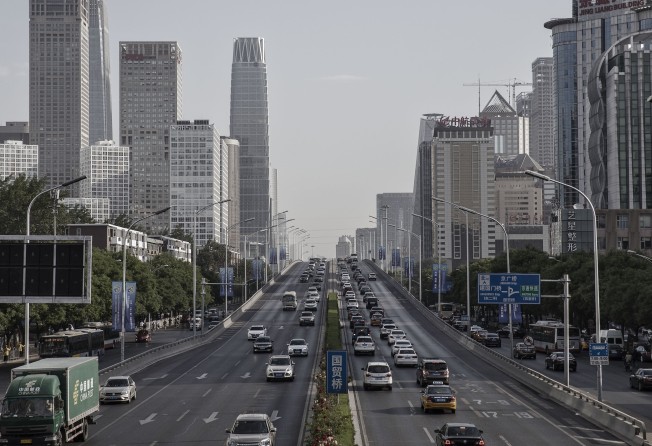China’s reit market could surpass US’ if barriers were removed, says Peking University
Sector potentially worth between US$600 billion and US$1.8 trillion, says Guanghua School of Management report

China’s real estate investment trust (reit) market could potentially be worth more than 12 trillion yuan (US$1.8 trillion), surpassing the US reit market’s size, if legal and tax barriers were removed, according to a Peking University report.
The report, released by the university’s Guanghua School of Management on Tuesday, based its estimation on China’s gross domestic product and total property market value relative to those in developed economies.
With a GDP of US$18.6 trillion and property value of US$27 trillion, the publicly floated reit market in the United States had a market capitalisation of US$1.01 trillion by the end of 2016, the largest in the world. China’s GDP by 2016 was US$11.2 trillion while its total existing real estate value was US$44 trillion. According to the report, the size of China’s reit market should have been between US$600 billion and US$1.8 trillion, depending on whether it was relative to GDP or real estate value.
The report also looked at public reits as a share of the entire stock market, and concluded that China’s reit market could potentially be worth at least US$600 billion, on the basis of a US$7.53 trillion stock market.
“We believe that the estimation is conservative, that the actual development in the coming years could far outstrip this, because China has an additional huge infrastructure market – that could be securitised via reits – and an underdeveloped residential leasing market,” said Zhang Zheng, a professor at the business school and author of the report.
China’s total committed investment in infrastructure projects hit 17.6 trillion yuan by August, and the residential leasing market could grow to 2.9 trillion yuan by 2025, the report said citing third-party estimates.
Despite this exciting prospect, legal, regulatory and tax issues have prevented a real reit product on the mainland. Instead shopping centre, office and hotel owners have been using asset-backed securities, which unlike reits, are securitised on the debt carried by these assets, rather than the equity of the underlying properties.
“We recommend that the government set the Securities Investment Fund Law as the principal law for reits and launch a pilot product soon,” Zhang said.
Reits became a buzzword in China after the country’s securities regulator last month approved asset-backed security products issued by two residential leasing operators that made tentative innovations in the details. The two products were, however, private placements instead of a public offer, and lacked global common practices, such as 90 per cent of dividend to investors, tax exemption and active transactions in secondary markets.
Skyrocketing property values on the mainland have also kept most commercial properties’ rental yield below 4 per cent, presenting a gap between what investors demand and what the underlying assets can generate.
Throughout history, China’s securities market has listed about 40 billion yuan worth of quasi-reit products, in essence asset-backed securities or business trusts, according to the report.
Andrew Kam, director of Savills Shanghai valuation, said: “When we talk about reits in the US or Hong Kong, we talked about tenants mix, attentive services, enhanced shopping experience and how to improve rent. But in China they talk about how to expedite issuance. That’s a major difference.
“In China, the so-called quasi-reits are more like debt products. The investors care about the credit rating of the issuers, much more than the quality of stand-alone projects. Elsewhere, active secondary market trading means if the properties don’t perform well reit prices will drop. In China this is not the case.”